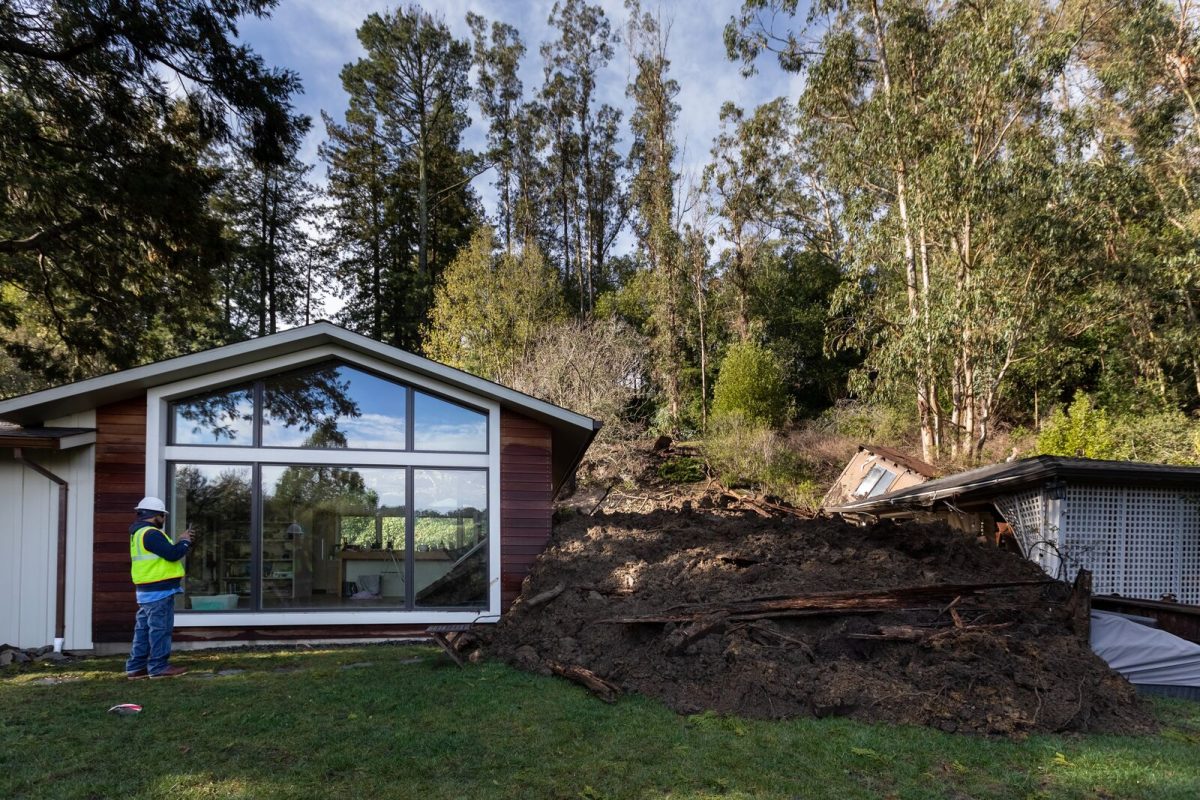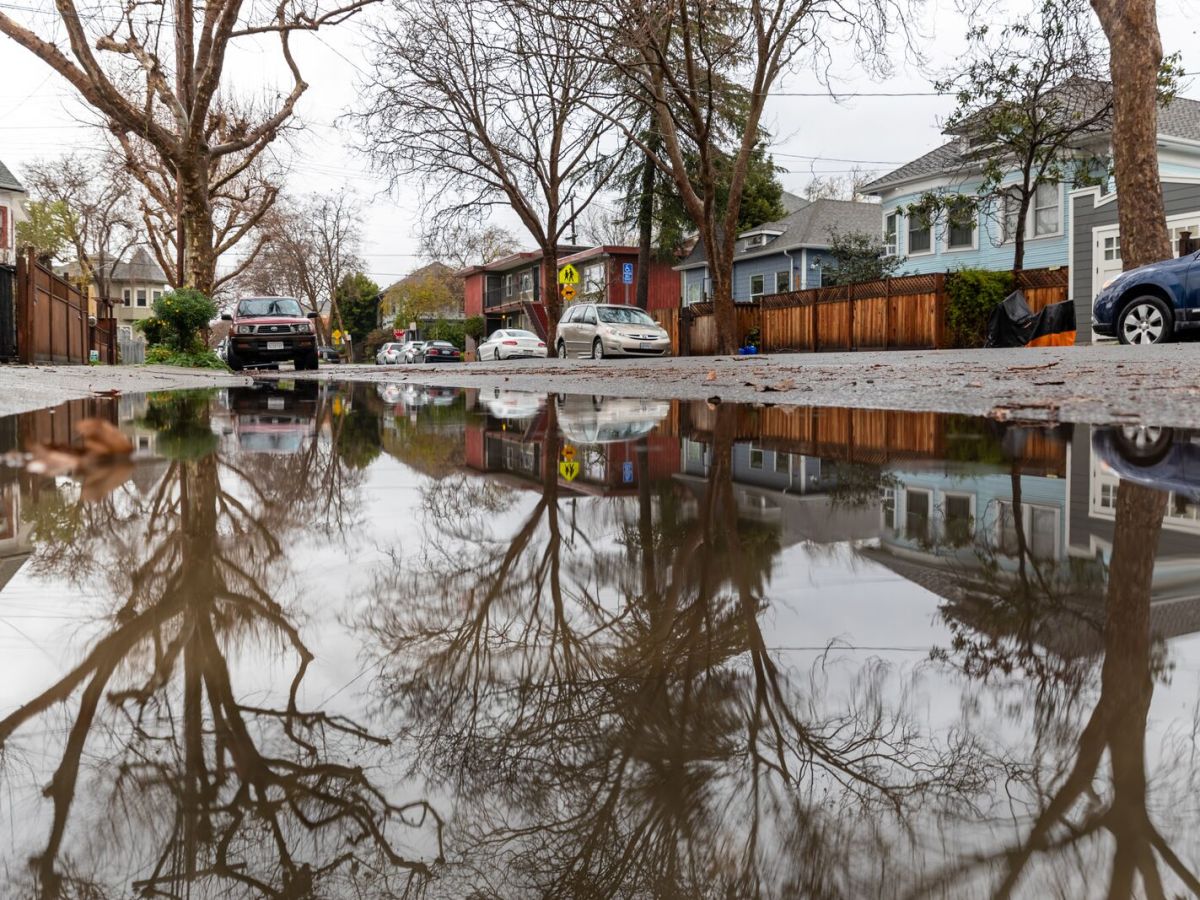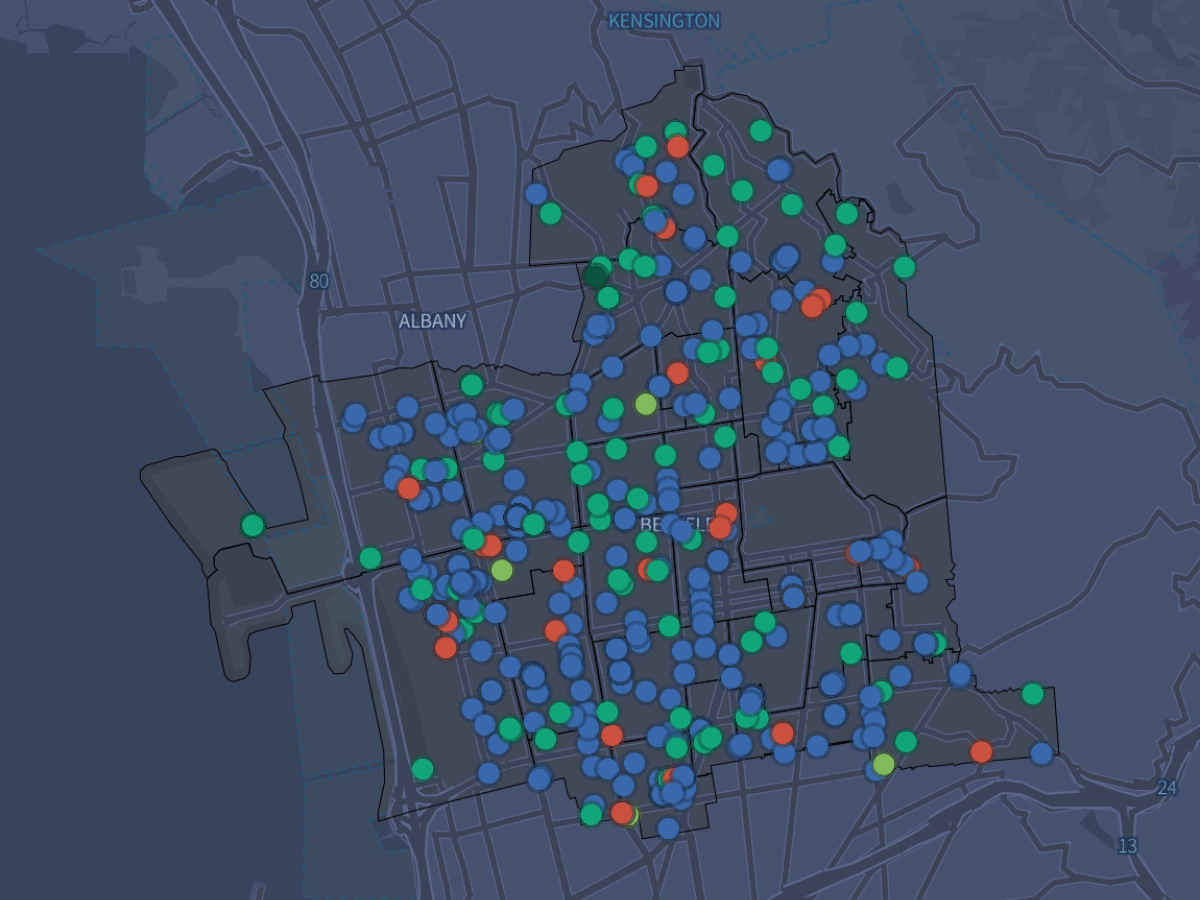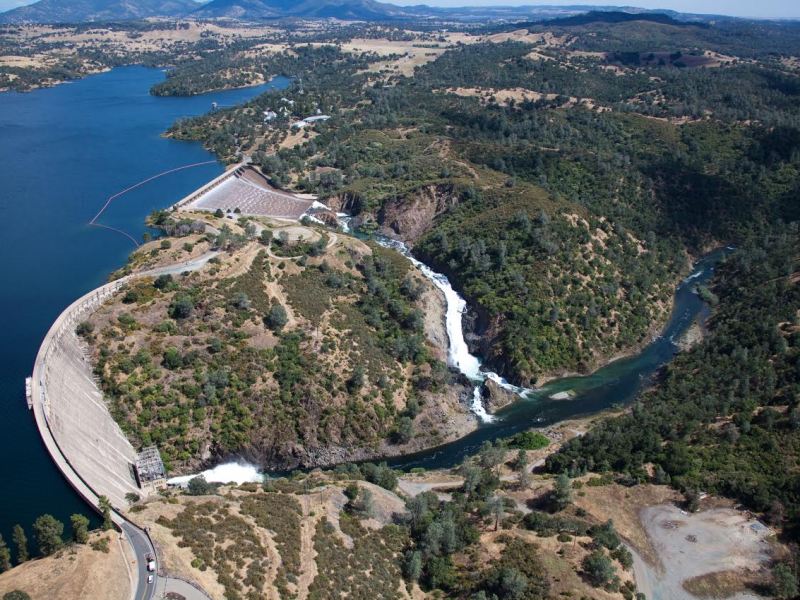
Fourteen people were evacuated from homes in the Berkeley Hills after a debris flow Monday morning swept down from Zaytuna College into the Park Hills neighborhood.
Marjorie Cruz, who lives on Middlefield Road near The Spiral, called 911 at about 6:30 a.m. when mud started flowing into her kitchen and living room. She was one of the first to experience the impact of a slide that went down the hill and caused dangerous conditions at seven other homes.
“You can’t describe what it’s like to wake up in the morning and look outside your door and see this horror come through,” Cruz told an NBC Bay Area reporter. “We’ve had enough rain for now and a long time to come. We get it.”
Police and fire officials responded to the area shortly after to help them evacuate the building safely. Ultimately, Cruz’s home and the seven others were red-tagged. Battalion Chief Nate Girard said none of the residents required support from the Red Cross to find temporary housing.
“In this situation, they were in line with the mudslide but it wasn’t as if mud was coming down and starting to move their house,” Girard said, so most residents had time to gather their essential belongings and leave their homes.
The mudslide was one of three reported in the Berkeley Hills, including a large flow that closed down Alvarado Road on the Berkeley-Oakland border about 5 miles south. Berkeley fire officials also responded to a smaller mudslide near the UC Berkeley Clark Kerr Campus at Sports Lane.
In North Berkeley, the debris flow originated on Zaytuna College’s Upper Campus at 2770 Marin Ave. While a Nixle alert was issued, no information was immediately shared on Zonehaven, the county’s evacuation software system that launched in 2021.
The city’s emergency operations center later updated an advisory for Zone 16 including the evacuation notice, but the area was appearing as “normal” until at least 9:40 a.m.
Berkeley police said at 10:15 a.m. that no additional evacuation orders are expected in the area, but residents in the neighborhood should continue to stay alert and be prepared to evacuate homes if conditions change. Fire officials remained in the area as of 2:30 p.m. to address safety concerns, including a broken water pipe that’s adding water to the flow area.
Councilmember Susan Wengraf first heard about the mudslide in her district at around 7:15 a.m., and she said neighbors jumped into action to accommodate others who had to evacuate their residences.
“Neighbors up there are very organized,” Wengraf said. “People know each other, and they take care of each other.”
She was initially concerned about impacted neighbors with mobility issues, but said she was able to confirm with neighbors that all the residents were able to evacuate their homes safely.
Alan Kropp, Berkeley resident and geotechnical engineer, responded to the mudslide as a volunteer when the city called him up Monday morning. He’s been responding to similar cases in and around the city for nearly 50 years, and said it’s unlikely that more homes in the neighborhood will be seriously damaged by the mudflow.
After weeks of rainstorms in the Bay Area, Berkeley is expecting drier weather this week.
Kropp explained that the debris flow in North Berkeley was caused by a buildup of materials that were then washed down by the heavy rain, rather than a historic problem area that’s prone to repeat damage.
These types of flows may not have happened before in the area and can be unpredictable, he said.
“Debris flows of this kind are … an accumulation of material that, once it’s released, it takes a while for that material to (again) accumulate,” Kropp said. “In a geologic timeframe, that could be 50, 100 or more years until that particular area would collect enough material to release again.”
These are different from areas of historic landslides that recently saw damage in rainstorms of 1998, 2006 and 2012. However, he said there are other portions of the Zaytuna College campus (which previously housed the Pacific Lutheran Theological Seminary) that have been under various landslide maintenance work for about 40 years.
Kropp said it’s hard to tell when it’ll be safe for residents to return to their homes, considering rain conditions in the coming days could change the outcome of the mudslide.
“Public agencies always want to err on the side of caution and that’s the appropriate response,” Kropp said of the evacuations.
Down the road, he said the repairs could be a very expensive process for residents — and one that isn’t covered by insurance.
Mudslide in Claremont Hills could require extensive work to clear
Fernanda Leal, a Claremont Hills resident, was on her way to the airport at around 6 a.m. Monday when she saw Alvarado Road blocked off by mud on her usual route down to the flats.
She called 911 to report the slide and had to take a different route to exit the neighborhood. Her home is on higher ground than the area where the slide occurred, but she said she was worried about residents in the path of the mudslide.
The large slide had blocked off the road completely by the morning, and Oakland police said a contractor’s help will be required to clear out the mud.
Maintenance workers TJ McIntyre (left) and David Bishop from Oakland’s Department of Transportation scooped up mud from Alvarado Road Monday afternoon with shovels and heavy equipment. Credit: Frances Dinkelspiel
The area is a spot of historic landslides. In 2006, Oakland entered into an agreement with the property owner to fortify the area. At the time, experts warned that the hillside was an “imminent hazard” if rains continued.
Here is a side by side comparison of part of Alvarado Road in Berkeley/Oakland that slid this am. The owners spent $$$ to shore up the hill, as seen in the Google Street View photo on the left. Gone in a few minutes on the right. #storm #mudslide pic.twitter.com/YnJMVhkdEX
— Frances Dinkelspiel (@Frannydink) January 16, 2023
Sari Cooper, whose Alvarado Road home is on a downhill slope very close to the slide, said she did not hear the rocks, mud and water tumbling down the hill, sending a slurry in between her house and her neighbor’s.
“I was in the kitchen and I heard nothing at all,” said Cooper, who had been forced to evacuate her home about 16 years ago when the hill also exhibited signs of weakness. “I was feet from it. It was completely silent.”
Throughout the day, neighbors walked up and down the closed Alvarado Road to gawk at the massive slide. For the past three years, they have been watching while the property owners spent millions to stabilize the hill. The project was so large and took so long that many neighbors suggested it cost millions of dollars.
“For those of us who live here, we’ve heard it was an $8 million project, a $5 million project,” said Cooper. “They worked for years; it was a huge project. In 16 years this is where we ended up.”
Cooper was waiting for a city engineer to tell her if her house was safe. Her next-door neighbors, directly below the slide, had already left. Their home did not look damaged.
In the afternoon, two maintenance workers from Oakland’s Department of Transportation were on the scene using heavy machinery to scoop up the mud lying on the road. TJ McIntyre and David Bishop had already been there for hours and said there were many more hours of work ahead of them.
This story was first published at 9 a.m. Monday, Jan. 16, and last updated at 4:45 p.m.
Correction: The Zaytuna College Berkeley Hills campus was formerly home to the Pacific Lutheran Theological Seminary, not the Pacific School of Religion.



